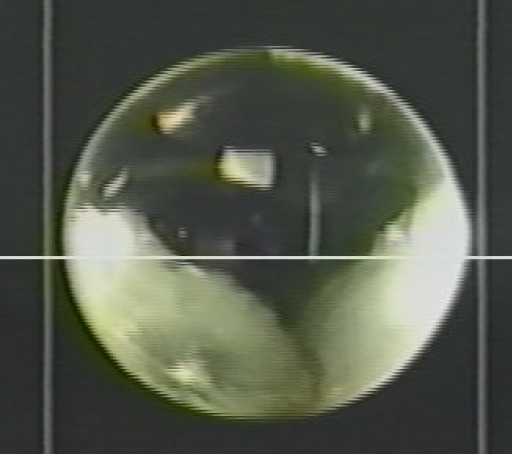Containerless Processing
Glasses of Li2O · 2SiO2 (LS2), and LS2 doped with 0.001 wt% platinum (LS2 + 0.001 wt% Pt) compositions were melted, cooled and reheated at controlled rates while levitated (containerless) inside an electrostatic levitator (ESL) furnace at the NASA Marshall Space Flight Center. The experiments were conducted in vacuum using spherical, 2.5–3 mm diameter, glass samples. The measured critical cooling rate for glass formation, R c, for the LS2 and LS2 + 0.001 wt% Pt glasses processed at ESL were 14 ± 2 °C/min and 130 ± 5 °C/min, respectively. The values of R c for the same LS2 and LS2 + 0.001 wt% Pt glasses processed in a container were 62 ± 3 °C/min and 162 ± 5 °C/min, respectively. The effective activation energy for crystallization, E, for this LS2 glass processed without a container at ESL, was higher than that for an identical glass processed in a container. These results suggest that the glass formation tendency for a containerless LS2 melt is significantly increased compared to an identical melt in contact with a container. The absence of heterogeneous nucleation sites that are inherently present in all melts held in containers is believed to be the reason for the increased glass forming tendency of this containerless melt.

for more information-









